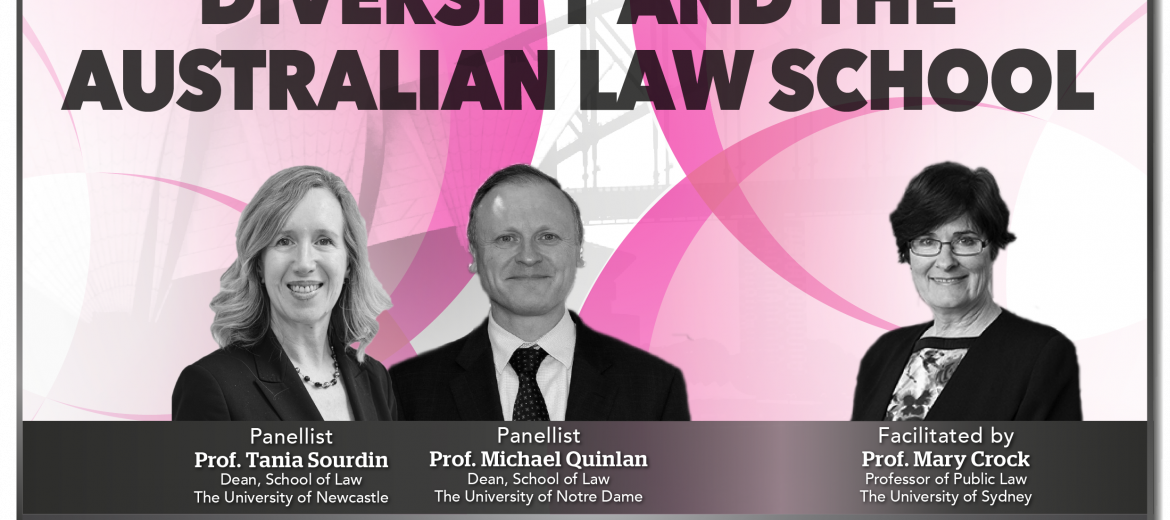
About The Event
About the panellists:
Professor Tania Sourdin
Professor Tania Sourdin is the Dean of the University of Newcastle Law School and was previously the Foundation Chair and Director of the Australian Centre for Justice Innovation (ACJI) at Monash University in Australia. Professor Sourdin has led national research projects and produced important recommendations for ADR and justice reform. In the past two decades, she has conducted qualitative and quantitative research projects into aspects of the dispute resolution and justice system systems in 12 Courts and Tribunals and six external dispute resolution schemes. Other research has focussed on justice innovation, technology, delay and systemic reforms. Her work outside Australia has included various international consultancies as an expert in relation to justice reform. Professor Sourdin is the author of a number of books, articles and papers, and has published and presented widely on a range of topics including ADR, justice innovation, justice issues, mediation, conflict resolution, collaborative law, artificial intelligence, technology and organisational change. She has retained a practice focus and has worked for more than 30 years as a lawyer, 20 years in various senior part time tribunal positions and has since 2014 been the NBN industry dispute resolution advisor.
Professor Michael Quinlan
Professor Quinlan is Dean of the School of Law, Sydney at The University of Notre Dame Australia. Prior to taking up this role in 2013, Professor Quinlan had a distinguished career of over 23 years at the commercial law firm Allens where he was a commercial litigation partner for more than 14 years. Professor Quinlan was a long-time member of that firm’s Pro Bono Committee. His pro bono practice centred around refugee and migration appeals but also involved assisting charities and individuals in need. Professor Quinlan is the Junior Vice President of the St Thomas More Society, a director of Freedom For Faith and a contributing member of the Wilberforce Foundation. He has a deep interest in the relationship between law and morality and law and religion. His presentations include “How the law in Australia is used and can be used to promote or to harm the Catholic faith.” (Catholics and Law Congress, Turon, Poland November, 2013) and “Religion, Law and Social Stability in Australia” (22nd Annual International Law and Religion Symposium, BYU, Provo, Utah, October 2015). His papers include:”Marriage, Tradition, Multiculturalism and the Accommodation of Difference in Australia,” 18 The University of Notre Dame Australia Law Review (2017) 3; “When the State requires doctors to act against their conscience: the religious implications of the referral and the direction obligations of health practitioners in Victoria and New South Wales” 4 (2016) BYU L. Rev.7, 1237 and “’Such is Life.’ Euthanasia and capital punishment in Australia: consistency or contradiction?” (2016) 6 Solidarity: The Journal of Catholic Social Thought and Secular Ethics 1, 6. Professor Quinlan is married to Kate and they have four children Edmund, Brigid, Sinead and Liam.
About the facilitator:
Professor Mary Crock
Professor Mary Crock is Professor of Public Law at Sydney Law School, a Fellow of the Australian Academy of Law, solicitor and Accredited Specialist in Immigration Law. Her expertise spans immigration, citizenship and refugee law, administrative and constitutional law, public international law, particularly human rights and international refugee law, and comparative law. She has published 13 books (including a leading text on Australian immigration and refugee law), over 70 refereed articles and book chapters and many other pieces; delivered hundreds of public lectures and has been awarded over 2.2 million dollars in research grants. Her research has been cited frequently in Australia’s Federal Courts and High Court and she has given evidence before a many parliamentary hearings in Australia and (once) in Canada. She has worked as adviser to the Australian Senate (Inquiry into Australia’s Refugee and Humanitarian Program, 2000); consultant to the Human Rights and Equal Opportunity Commission (on immigration detention); and consultant to the Royal Commission into Child Sex Abuse (on children in immigration detention). She is frequently consulted by, and contributes opinion pieces to, the national and international media.

